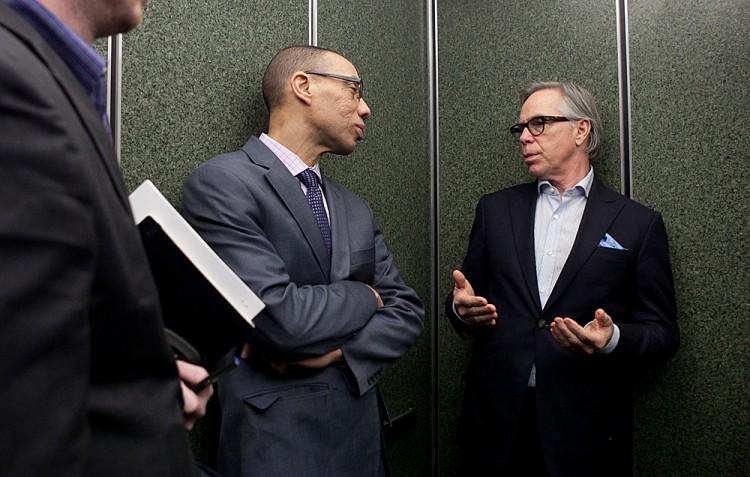NEW YORK—Tommy Hilfiger kicked off Fashion Week by visiting students at the High School of Fashion Industries in Chelsea, Feb. 7. The students had plenty of questions and Hilfiger graciously complied. Here is an edited version of the questions and answers.
Describe a Normal Day
I wake up. I do yoga or exercise. I see my children in the morning before they go to school, or spend some time with them.
Then I usually go and sit with the accountants, with the business people, and learn about what’s going on with the business. How much did we sell in the Fifth Avenue store yesterday? What sold? What didn’t? How’s business in Europe? What’s going on with how business is?
And then in the afternoon I work with the people who are setting up our fashion shows, the models, the stylists. I look at the advertising. We look at the new styles we’re designing, the fabrics, the clothes. At night we do charity events, go to dinners with people. That’s usually what I do. And I travel a lot also.







